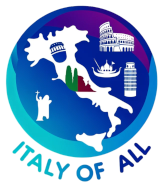The province of Padua, located in the Veneto region of northeastern Italy, is known for its rich historical heritage, vibrant academic community, and diverse economic landscape. With a history that spans centuries and a culture steeped in education and the arts, Padua stands out as a significant cultural and economic hub in the region.
Geographically, Padua is characterized by a varied landscape that includes the eastern part of the Euganean Hills, renowned for their thermal springs, and a vast plain area that is crisscrossed by numerous rivers, including the Brenta and the Bacchiglione. This fertile plain supports a rich agricultural sector, while the hills are a popular tourist destination for their natural beauty and spa towns.
Historically, Padua is one of the oldest cities in northern Italy, with roots going back to the Paduans mentioned in classical antiquity. It gained prominence in the Middle Ages as a center of scholarship and learning, which continues to this day with the University of Padua, founded in 1222. The university is one of the oldest in the world and was where Galileo Galilei once taught. The city’s historical significance is also marked by its religious heritage, prominently displayed in the Basilica of Saint Anthony, an important pilgrimage site.
Culturally, Padua boasts a lively arts scene, enriched by its university population and a legacy of notable residents, including the Renaissance artist Giotto, whose frescoes in the Scrovegni Chapel are considered a masterpiece of Western art. The city also hosts numerous festivals and events throughout the year, which celebrate everything from its religious history to contemporary culture.
Cuisine in Padua reflects the agricultural richness of the Veneto plain, with a diet that includes a variety of meats, vegetables, and legumes. Traditional dishes like “risi e bisi” (rice and peas) and “bigoli con l’anatra” (thick spaghetti with duck sauce) showcase local ingredients and culinary techniques. The region is also known for its production of Prosecco and other wines, which are celebrated in local eateries and wine bars.
Economically, Padua’s economy is well-diversified, featuring strong sectors in agriculture, industrial manufacturing, and services. The city is a significant commercial center with a large industrial zone that includes sectors such as machinery, food processing, and electronics. Additionally, the presence of the university contributes significantly to the local economy, not only through education and research but also through the attraction of students and professionals.
Despite challenges such as urban sprawl and the need to balance economic growth with preserving its cultural and environmental heritage, Padua is actively engaged in developing strategies to promote sustainable development. This includes enhancing public transportation, promoting green spaces, and supporting cultural and educational initiatives that draw upon the city’s rich historical and academic legacy.
Overall, the province of Padua offers a compelling blend of historical depth, cultural vibrancy, and economic vitality. Its ongoing efforts to foster sustainable growth while maintaining its unique heritage ensure its continued importance in Italy’s cultural and economic landscape.
Comuni in Padua Province:
- Arre
- Anguillara Veneta
- Boara Pisani
- Bagnoli di Sopra
- Abano Terme
- Arzergrande
- Albignasego
- Arquà Petrarca
- Borgoricco
- Agna
- Baone
- Camposampiero
- Campodarsego
- Campodoro
- Cartura
- Casalserugo
- Campo San Martino
- Candiana
- Casale di Scodosia
- Castelbaldo
- Brugine
- Bovolenta
- Carmignano di Brenta
- Cadoneghe
- Cervarese Santa Croce
- Conselve
- Due Carrare
- Codevigo
- Cittadella
- Curtarolo
- Correzzola
- Fontaniva
- Granze
- Megliadino San Vitale
- MelMelara
- Legnaro
- Massanzago
- ** Maserà di Padova
- Galzignano Terme
- Grantorto
- Limena
- Masi Torello
- Galliera Veneta
- Loreggia
- Lozzo, LombardyLozzo Atestino
- Padua
- Montagnana
- Mestrino
- Monselice
- Montegrotto Terme
- Ospedaletto Euganeo
- Noventa Padovana
- Merlara
- Ponte San Nicolò
- Piove di Sacco
- Polverara
- Ponso
- Piombino Dese
- Saccolongo
- Pernumia
- Pontelongo
- Pozzonovo
- ** Rubano
- Piazzola sul Brenta
- Stanghella
- San Pietro Viminario
- Selvazzano Dentro
- San Giorgio delle Pertiche
- Sant’Angelo di Piove di Sacco
- San Paolo Bel Sito
- Sant’Elena Sannita
- San Martino di Lupari
- San Giorgio in Bosco
- Sant’Urbano
- Santa Giustina in Colle
- Vigonza
- Vescovana
- Vo’
- Villa del Conte
- Villafranca Padovana
- Tribano
- Villanova di Camposampiero
- Villa Estense
- Terrassa Padovana
- Vigodarzere
- Trebaseleghe
- Vighizzolo d’Este
- Veggiano
- Torreglia
